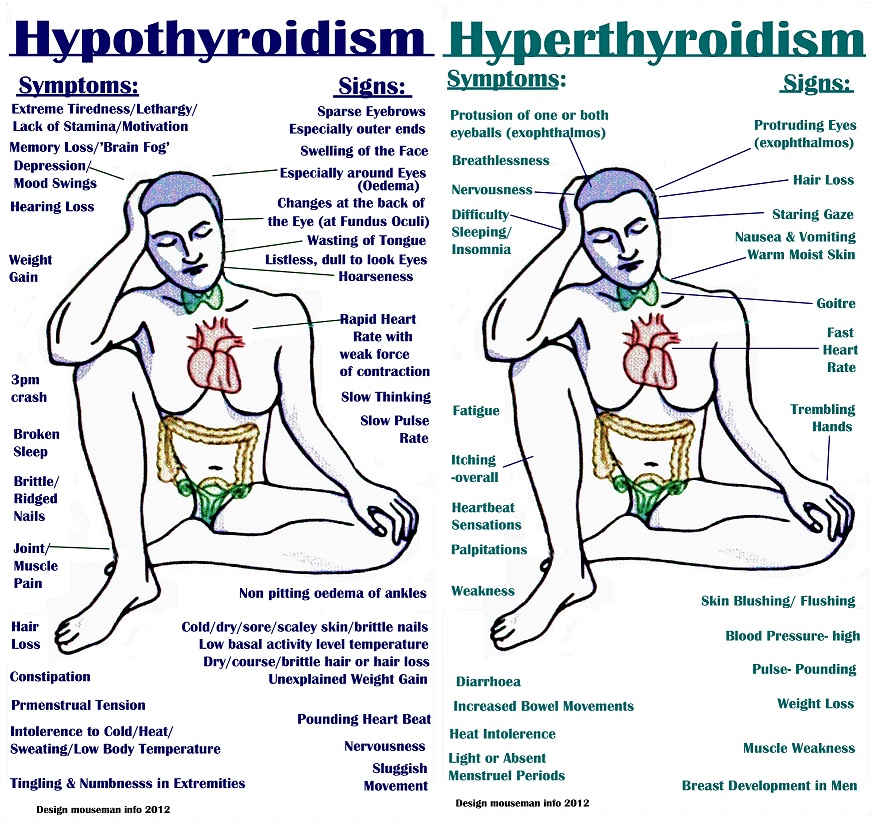Over 25 million Americans have a thyroid disorder but about 15 million of those are silent sufferers that go undiagnosed, according to The American Association of Clinical Endocrinologists, with women being 10 times more affected than men. Thyroid disorders can range from a small, harmless goiter (enlarged gland) that needs no treatment to life-threatening cancer. However, most thyroid problems can be managed well if properly diagnosed and treated.
All types of hyperthyroidism are due to an overproduction of thyroid hormones, but the condition can occur in several ways:
- Graves’ disease: The production of too much thyroid hormone.
- Toxic adenomas: Nodules develop in the thyroid gland and begin to secrete thyroid hormones, upsetting the body’s chemical balance; some goiters may contain several of these nodules.
- Sub acute thyroiditis: Inflammation of the thyroid that causes the gland to “leak” excess hormones, resulting in temporary hyperthyroidism that generally lasts a few weeks but may persist for months.
- Pituitary gland malfunctions or cancerous growths in the thyroid gland: Although rare, hyperthyroidism can also develop from these causes.
Hypothyroidism , by contrast, stems from an underproduction of thyroid hormones. Since your body’s energy production requires certain amounts of thyroid hormones, a drop in hormone production leads to lower energy levels. Causes of hypothyroidism include:
- Hashimoto’s thyroiditis : In this autoimmune disorder, the body attacks thyroid tissue. The tissue eventually dies and stops producing hormones.
- Removal of the thyroid gland: The thyroid may have been surgically removed or chemically destroyed.
- Exposure to excessive amounts of iodide: Cold and sinus medicines, the heart medicine Amiodarone, or certain contrast dyes given before some X-rays may expose you to too much iodine. You may be at greater risk for developing hypothyroidism if you have had thyroid problems in the past.
- Lithium : This drug has also been implicated as a cause of hypothyroidism.
Symptoms of thyroid trouble usually start slowly and can be difficult to diagnose. But overtime, a faster (hyperthyroidism) or slower (hypothyroidism) can cause symptoms that will need to be treated promptly. Talk to your doctor if you or a loved one are experiencing the unusual symptoms listed below and/or have a family history of thyroid disease.



